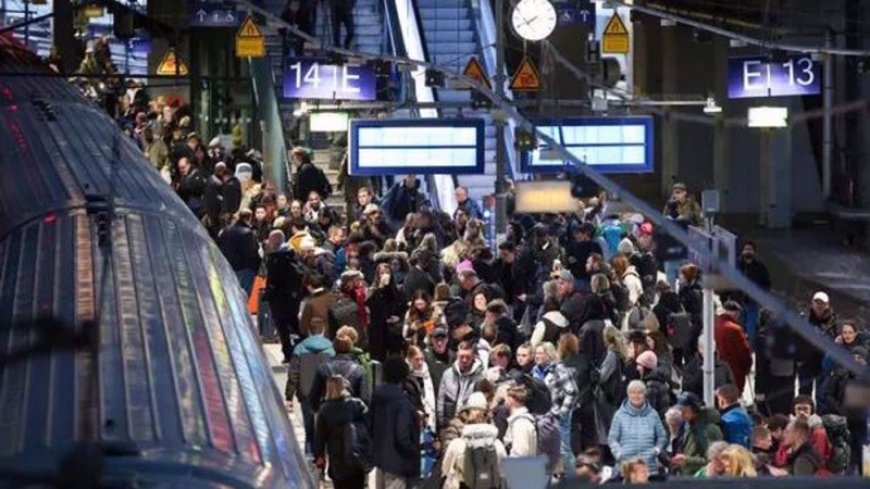Germany mega strike: nationwide traffic strike begins and causes travel chaos

BERLIN - Germany is facing a major traffic disruption as workers on airports, ports, railways, buses and subway lines began a nationwide strike on Monday, demanding wage increases amid rising inflation.
The 24-hour strike was announced by the Verdi union, which represents nearly 2.5 million public sector workers, and the EVG, which represents 230,000 train and bus workers.
"A labor dispute that has no effect is a toothless labor dispute," Verdi boss Frank Werneke was quoted as saying by the German public broadcaster Phoenix.
While acknowledging that the strike would inflict pain on commuters, he stressed that "a stressful day" hoping for a collective bargaining agreement was better than weeks of industrial action.
The nationwide strike comes as employers, primarily the state and public companies, rejected Verdi's demands for a 10.5 percent increase in monthly wages and EVG's demands for a 12 percent increase in the workers it represents.
To avoid supply shortages, Germany's Transport Minister Volker Wissing on Sunday ordered states to lift restrictions on truck deliveries and urged airports to allow night takeoffs and landings "to allow stranded passengers to reach their destination."
However, all major international airports in the country were affected by Monday's strike, according to German media, with around 400,000 passengers believed to have faced delays or cancellations.
In Frankfurt, all arriving and departing flights have been canceled or delayed by a whole day. In a tweet, the airport announced that airport operations would be "severely disrupted" throughout the day and there would be "no regular passenger flights."
The German Airports Association had earlier estimated that around 380,000 air travelers would be affected by what local media is calling a "megas strike" on Monday, while state-owned rail company Deutsche Bahn (DB) expected "massive impacts" across its rail network.
In recent months, Germany has been hit by strikes in several sectors, including the post office, airports and public transport. Workers are demanding higher wages to cope with soaring inflation, which hit 8.7 percent in February, and the rapidly worsening cost-of-living crisis.
Like other European countries, Germany has been struggling with skyrocketing inflation since the start of the war in Ukraine last year, which has sent food and energy prices skyrocketing.
Russia launched its “military operation” in Ukraine in February 2022 after Kiev failed to implement the provisions of the 2014 Minsk accords and Moscow recognized the breakaway regions of Donetsk and Luhansk.
Since then, the US and its European allies have imposed unprecedented economic sanctions on Moscow while delivering many shipments of heavy weapons to Kiev.
Earlier this month, airports in Bremen, Berlin, Hamburg and Hanover canceled more than 350 flights. Bus and subway workers in Frankfurt also organized a strike.
Monday's strike in Germany, aimed at bringing the country to a standstill, comes at a time when industrial action in neighboring France over President Emmanuel Macron's pension reform plans has spiraled into a massive political crisis, with protesters demanding the ouster of the president demand.













































